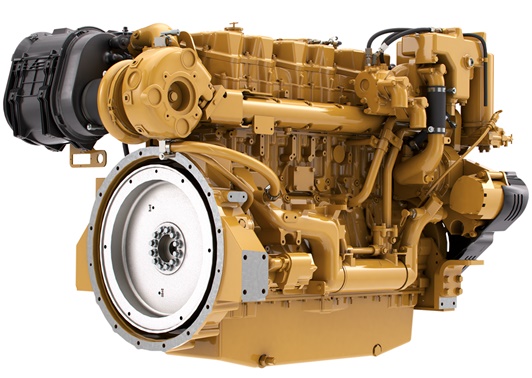
Briefly: Electronic Controlled Engines
Engines designed in the 1800s were mechanical engines and they have proved to be a very reliable workhorse in the modern day industry, powering the engines in your buildings, on vessels and all sorts of heavy machineries. As technologies for heavy machineries and vessels improve, there is also a demand for engines' technology to keep up. Unsurprisingly, there are more and more electronic controlled engines in the market and they are becoming an important feature in all forms of power generation.
But what is an electronic engine, and why are they fast becoming the preferred engine in the market?
Let's find out a bit more.
Electronic engine as described, are managed by electronic control unit or ECU. The ECU controls all the actuator movements in the engine to ensure the engine maintains at its optimal performance – like your brain.
One of the main reasons for an electronically controlled engine is better optimisation of engine and fuel efficiency.
The ECU draws data from various sensors in the engine and continuously adjust the actuators in real time. This includes altering the fuel injection rate according to the amount of power output required. The engine can inject the amount of fuel required, and thus, improving overall fuel efficiency of the engine. For example, if the ECU detects that your machine is on idle, it will also reduce the engine’s speed, and reducing the fuel required at that moment. Use less, save more.
With the ECU, we can also ensure that the right amount of power is delivered to the hydraulic systems. Hydraulic system is an important system in heavy construction machineries. It is responsible for all the movements and actions that a machine can perform, and draws quite a large amount of energy from the engine. Therefore, it is important that we supply the right amount of power to the hydraulics systems according to the required operations. This feature is brilliantly incorporated into the Cat Next Generation Excavators. This range of excavators have a “SMART” Power mode where the engine can detect the power required and adjust the energy output accordingly. This further ensures the fuel consumption optimisation of the engine.
The other reason for the shift towards electronically controlled engine is for better emissions controls. Many countries and industries, like the marine industry, are placing more emphasis on engine emissions. In Singapore, all off-road diesel engines need to comply with US Tier 2 emission requirements. These emission standards can be better managed with an electronic engines.
While many engineers and technicians may be more familiar with mechanical diesel engines, the operation benefits of running an electronically controlled engine is definitely higher than a mechanical engine in the long run.

